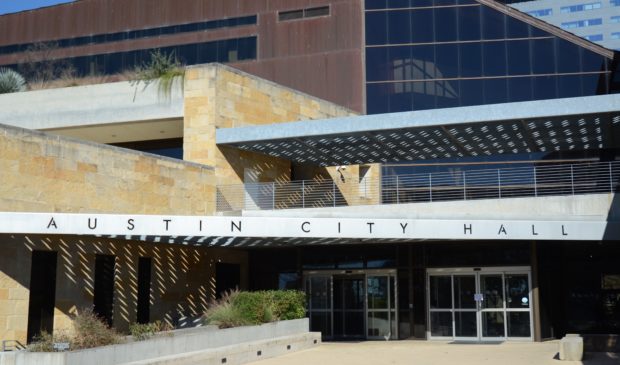City considers racial equity in Hotel Occupancy Tax distribution
Friday, October 23, 2020 by
Alyssa Weinstein Earlier this month, the city’s Economic Development Department provided an update and offered a handful of recommendations for how it plans to use Hotel Occupancy Tax funds to achieve greater racial equity in Austin.
The three high-level recommendations mainly have to do with systems to better serve minority communities – especially those with English as their second language. The project also strives to keep Austin’s younger generation interested in the city’s culture by creating new products and preserving Austin legacies.
Margie Johnson Reese, an art management consultant working with the Economic Development Department, made a recommendation during the department’s presentation earlier this month to “Invest in the creative sector to nurture and protect the artistic expressions of Austin’s racially and culturally diverse communities.”
This would include funding a Leadership in Arts Management Institute to assist arts administration practices and BIPOC-led organizations of color.
In the first quarter of 2020, Reese and the team were asked to include the Music and Entertainment Division and the Heritage Tourism Division in assessing the grant-making and funding programs and how the three divisions might work together to design the funding program.
“This is no small task as we try to serve three different divisions all under the Hotel Occupancy Tax umbrella,” Reese said during the Historic Landmark Commission meeting last month. “We want to bring more clarity to the public about the use of those funds.”
Reese and her team kept the focus on dissolving Austin’s racial inequities and assuring accountability.
The project began with community outreach with artists, art organizations and the city’s Music Commission to get a sense of how they were able to access city grant funds.
“We’re trying to guide the conversation away from making abrupt, jerky sort of changes and thinking about how do we embed better practices throughout the three divisions,” Reese said. “We’re taking our time and learning a great deal.”
According to Reese, the public will decide what this new and equitable program will look like and how it will be evaluated. Last year when the city’s HOT rate increased to a total of 17 percent, the maximum allowable under state law, many community members urged the funds be used for art, music and homelessness services.
After doing some community engagement, the team found opportunities to strengthen city processes. A lot of the public feedback focused on Black, Latinx and Asian artists and communities.
“We’re saying equity is a community problem, a community conversation, and there has to be a community response,” Reese said during the EDD presentation.
From now until December, EDD will be drafting its programs according to Reese’s recommendations outlined at the department’s meeting on Oct. 12. The department will continue to refine its program drafts in time for a launch planned for March 2021.
The Historic Landmark Commission supported Reese and her efforts to achieve greater racial equity with the hotel tax.
“This commission is committed to finding equity and telling the story of all people who worked together and created the city that we know and love,” Historic Landmark Commissioner Terri Myers said. “We want to reach out and recognize the contributions of all people, especially people of color who in the past may have been underrepresented in preservation.”
This story was written by a journalism student at the University of Texas at Austin. The Austin Monitor is working in partnership with the UT School of Journalism to teach and publish stories produced by students in the City and County Government Reporting course.
The Austin Monitor’s work is made possible by donations from the community. Though our reporting covers donors from time to time, we are careful to keep business and editorial efforts separate while maintaining transparency. A complete list of donors is available here, and our code of ethics is explained here.
You're a community leader
And we’re honored you look to us for serious, in-depth news. You know a strong community needs local and dedicated watchdog reporting. We’re here for you and that won’t change. Now will you take the powerful next step and support our nonprofit news organization?






